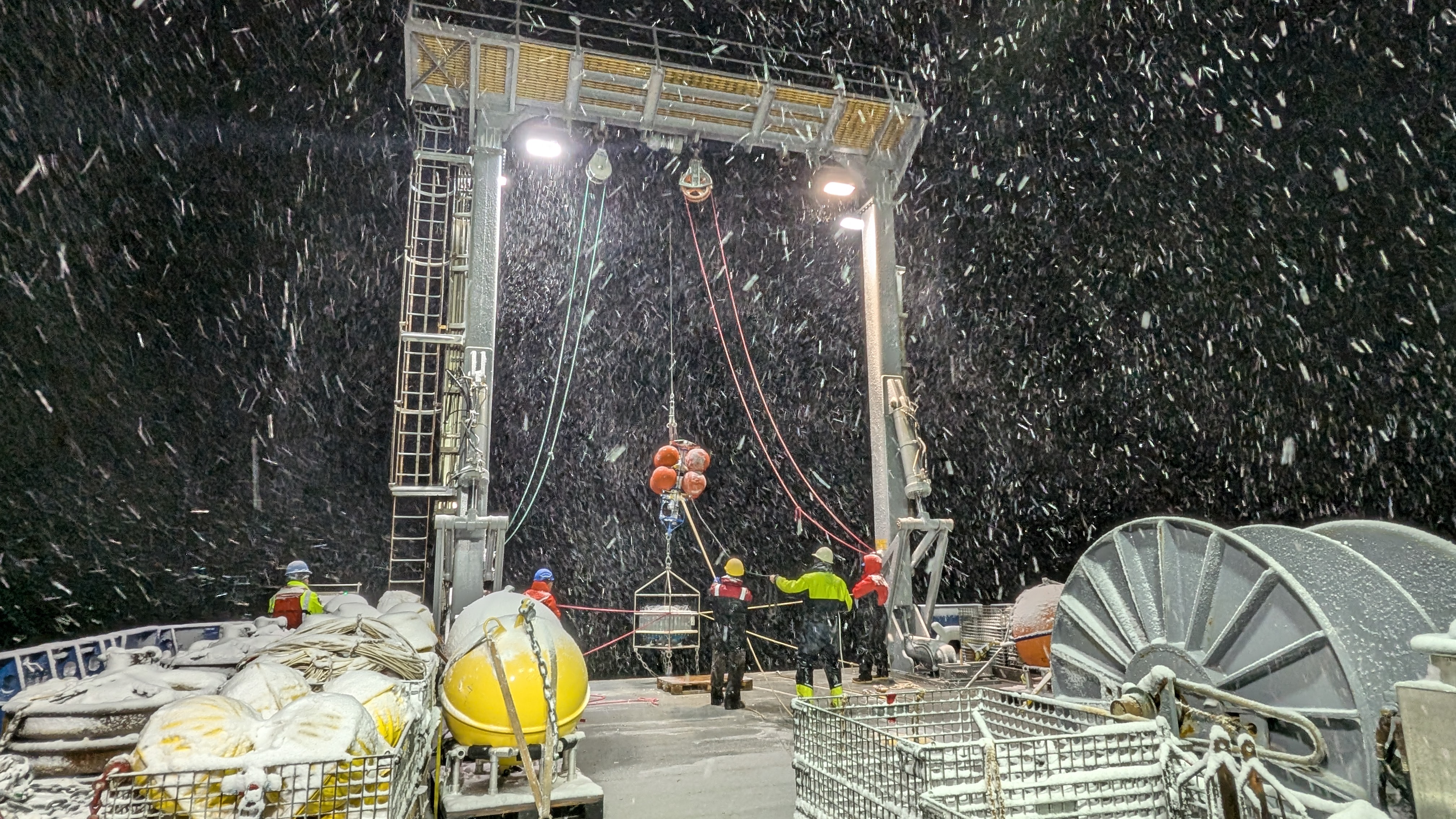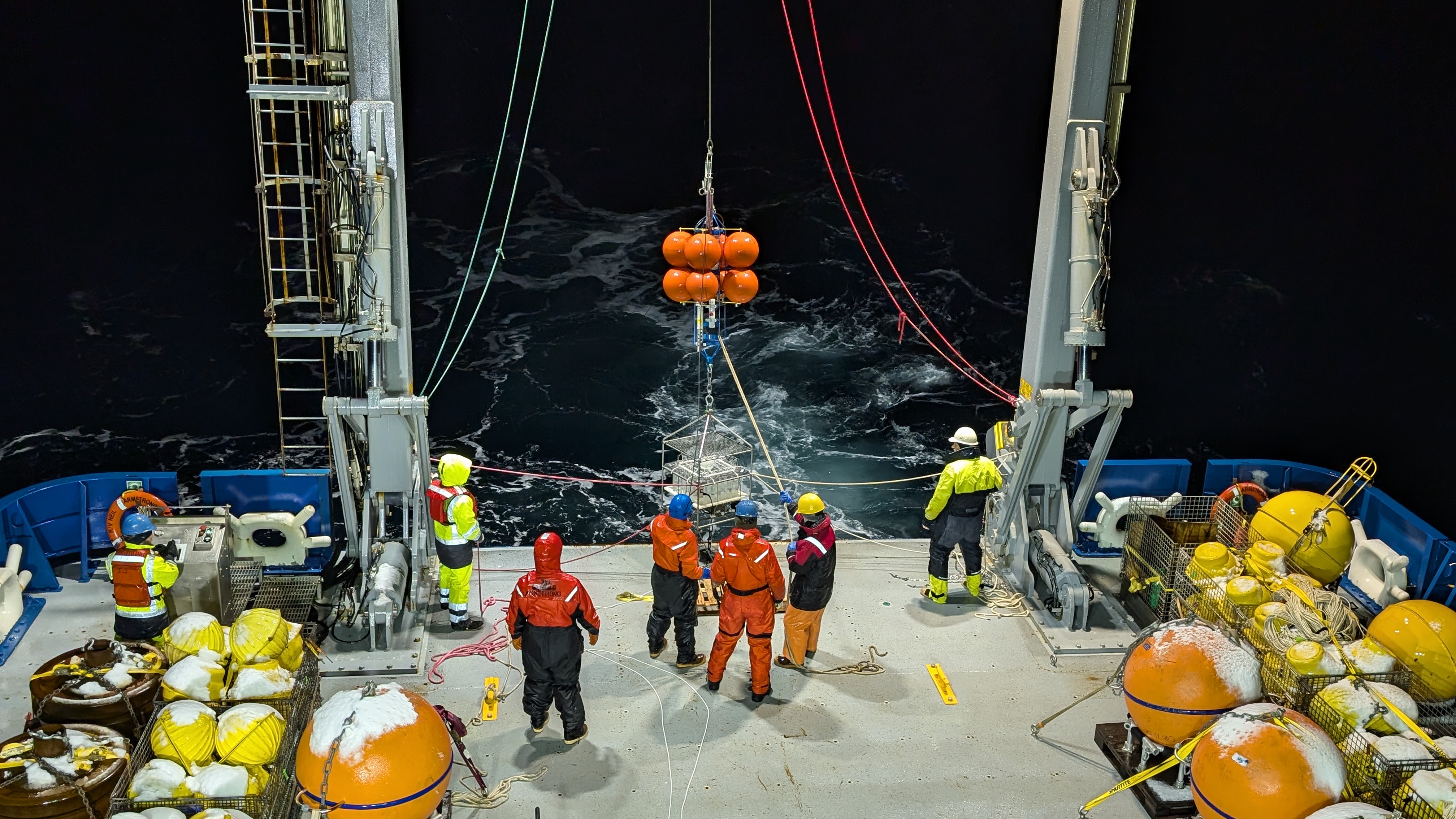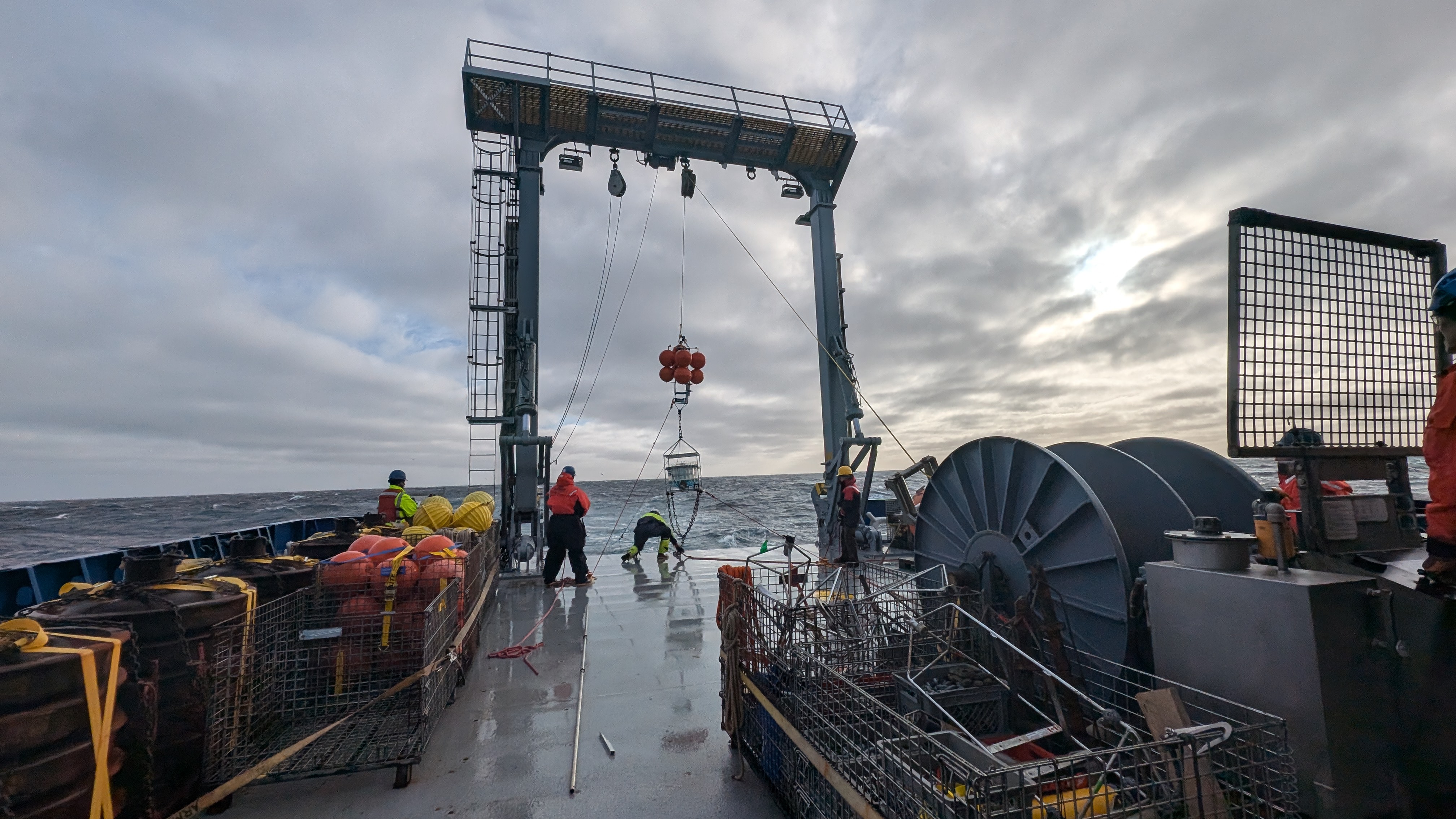The polar regions are an important source of nutrients into the wider ocean, where they support healthy marine life, including fisheries, and drawdown carbon dioxide from the atmosphere, slowing climate change effects.
But we don’t know much about the processes that release nutrients from the polar regions or the current and future impact of climate change on them.
As part of an expedition on the US ship RV Neil Armstrong, which sailed out of Greenland earlier in October, National Oceanography Centre (NOC) scientists deployed monitoring equipment that will measure the nutrient content in some of the key waters flowing out of the Arctic, into the North Atlantic.
The instruments were added to a mooring array that sits between Greenland and Baffin Island in Nunavut, Canada, and which is part of the Davis Strait Observing System, led by University of Washington.

The aim is to learn more about the role the polar regions play in delivering nutrients into the wider global ocean, and how they support healthy marine life, including fisheries. In particular, we want to understand how this will alter under the rapid climate change seen in the Arctic.
The NOC involvement was as part of the BIOPOLE project, led by British Antarctic Survey.
Together with data collected in the Arctic by NOC and other partners in BIOPOLE, this will help us understand the controls on nutrients being exported from the poles, how this might alter under climate change and the impacts this might have.



A busy year for NOC in the Arctic
This deployment follows a busy summer of NOC science and public engagement activities in the Arctic region.
In August RRS James Cook embarked on an ambitious expedition from Greenland to Reykjavik, as part of the Resolving Biological carbon Export in the Labrador Sea (ReBELS) project.
This kicked off a year of intensive study that will bring a new understanding of how much carbon is stored by the biological carbon pump in the Labrador Sea, a key region of carbon storage in the North Atlantic. As part of this mission, the ship will return to Nuuk in the summer of 2025.
Changes in the Arctic environment are already affecting our planet through sea-level rise, changes to our climate and weather patterns, and threats to our shared biodiversity.
It’s critical that we continue to gather crucial data and facilitate collaborative discussions to tackle challenging marine science problems.
Read more
Find out more: https://biopole.ac.uk/